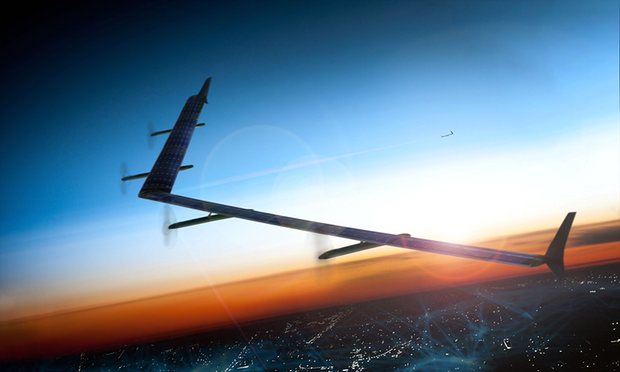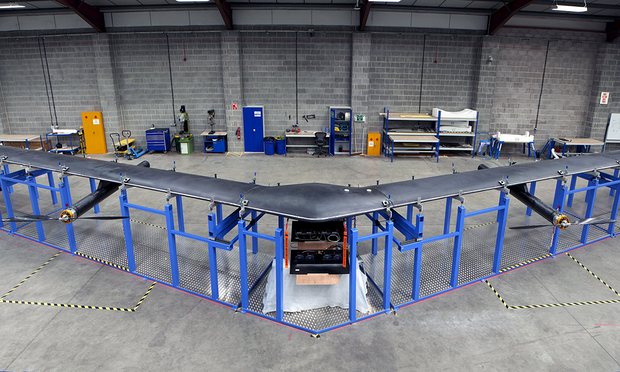Facebook's solar-powered drone under investigation after 'accident'
Facebook has hit a hitch in its plans to use a solar-powered unmanned drone to provide internet access to developing nations, after it was revealed the American National Transportation Safety Board (NTSB) has opened an investigation into an accident on the drone’s first test flight in June.
At the time, Facebook described the flight as 'sccessful': the drone, called Aquila, stayed aloft for 96 minutes, three times the planned duration. “We have a lot of work ahead of us,” Jay Parikh, Facebook’s head of engineering and infrastructure, wrote when Facebook revealed the test flight, in late July. “In our next tests, we will fly Aquila faster, higher and longer, eventually taking it above 60,000 feet.”
 |
| Facebook’s Aquila drone was developed in Bridgwater, Somerset, by a team Facebook acquired for $20m back in 2014. Photo: Facebook |
In a second, more technical, blogpost published that same day, Facebook’s Martin Luis Gomez and Andrew Cox acknowledged the failure in passing. “Our first flight lasted three times longer than the minimum mission length, so we were able to gather data on how the structure and autopilot responded under a range of real-world conditions to help verify these predictions,” they wrote.
“We are still analysing the results of the extended test, including a structural failure we experienced just before landing. We hope to share more details on this and other structural tests in the future,” Cox and Gomez added.
It has now come to light that the “structural failure” led to an NTSB investigation, according to a report seen by Bloomberg News. The failure was classified by the NTSB as an “accident”, which requires “substantial” damage.
 |
| Facebook drone Aquila is a drone with a 130-ft (40-m) wingspan built by social media company Facebook, is shown in this publicity photo released to Reuters on July 30, 2015. Photo: HANDOUT/REUTERS |
The drone is intended to boost Facebook's Internet.org project to bring a billion people online, by flying at a higher altitude than commercial planes and beaming data down to earth using lasers. The goal is for the plane to occupy a similar niche to satellites in providing access to remote areas, without the exorbitant launch costs that come with space-based communications technology.
The drone is physically little more than a lightweight wing with solar panels on the top, ensuring it can fly for extended periods of time without landing.
Aquila was developed in Bridgwater, Somerset, by a team Facebook aquired for $20m back in 2014. Formerly a consultancy called Ascenta, the team is led by 51-year old engineer Andrew Cox.

